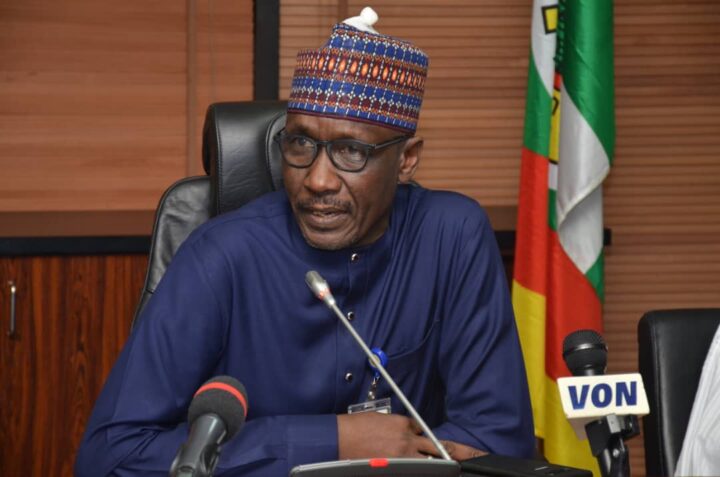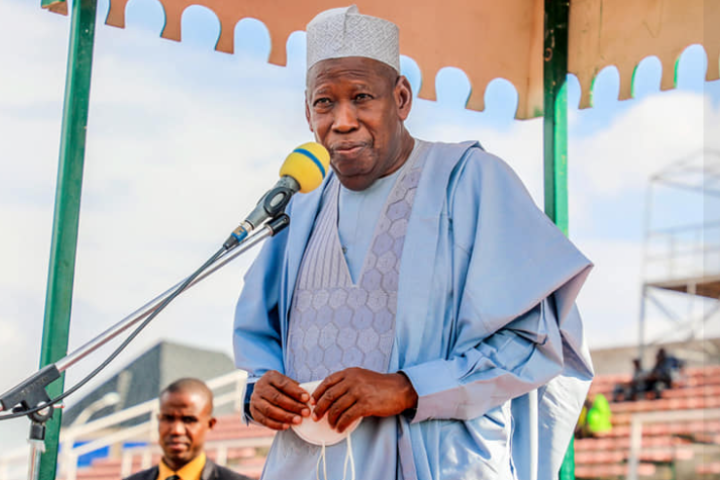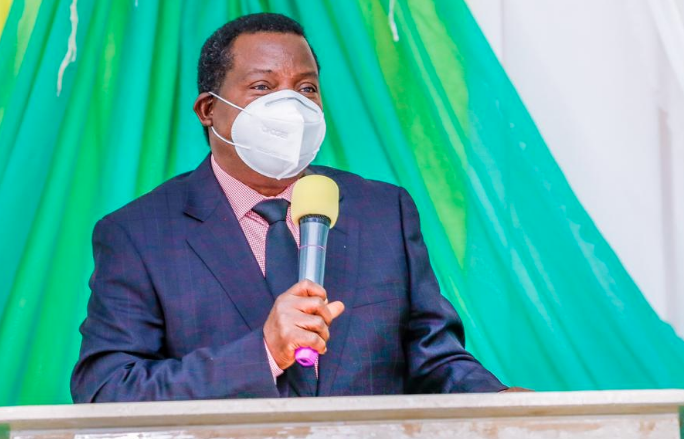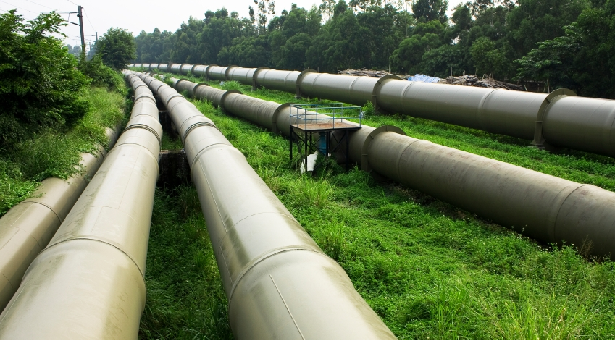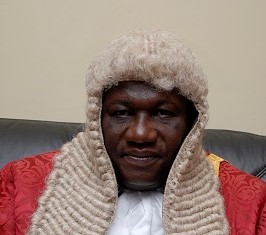Mele Kyari, CEO of NNPC
The Nigerian National Petroleum Corporation (NNPC) says it will develop a comprehensive divestment policy for international oil companies (IOCs) operating in the country.
Mele Kyari, group managing director of NNPC, made this known on Monday at the 2021 Society of Petroleum Engineers (SPE) Nigeria Annual International Conference and Exhibition (NAICE), held in Lagos.
Kyari said the divestment policy would ensure that only investors with technical, financial and operational capabilities take position of the IOCs assets, thereby adding value to the industry.
“We have seen a whole wave of divestments by major IOCs operating in our country,” NAN quoted him as saying.
Advertisement
“NNPC as their major partner cannot stop partners from divesting their interests. We can’t do this because we all have the right to migrate our portfolios depending on the circumstances.
“The divestments create challenges for us in ensuring that we get right and competent investors to take position and add value to the industry.
“We have engaged all our partners to ensure that while they have the right of divestments, that there should be no situation where this will become a waterloo of our industry.
Advertisement
“Therefore, NNPC will ensure Nigeria’s strategic national interest is safeguarded by developing a comprehensive divestment policy that will provide clear guidelines and criteria for divestment of partner’s interest”
Kyari explained that the NNPC would make clear distinctions between divestment of shares and operatorship agreements under various joint operating agreements.
According to Kyari, it will also leverage its rights of pre-emption as well as evaluating the operational competency and track records of new partners.
He said attention would be paid to abandonment and relinquishment costs, severance of operator staff as well as third party contract liabilities.
Advertisement
The NNPC GMD noted that the divestment was being driven by global energy transition which was making the IOCs diversify their portfolios to low-carbon investments.
Kyari said energy consumption would increase beyond what renewable energy sources can meet by 2050, especially with the anticipated economic growth and rising population of Asia and Africa.
“Building on this convergence, Nigeria as a key player in global energy security is addressing its challenges mainly, fiscal, security and cost competitiveness to stimulate investments in the oil and gas industry,” he added.
“This include the recent passage of the Petroleum Industry Bill, the National Gas Expansion Programme and development of gas infrastructure such as the Ajaokuta- Kaduna-Kano (AKK) and the Obiafu-Obrikon-Oben (OB3) pipelines.’’
Advertisement
In May, Royal Dutch Shell had said it was involved in discussions with the federal government to sell its onshore oil assets in Nigeria.
Ben van Beurden, chief executive officer of Shell, said the oil giant can no longer be exposed to the risk of theft and sabotage in the Niger Delta.
Advertisement
Add a comment
